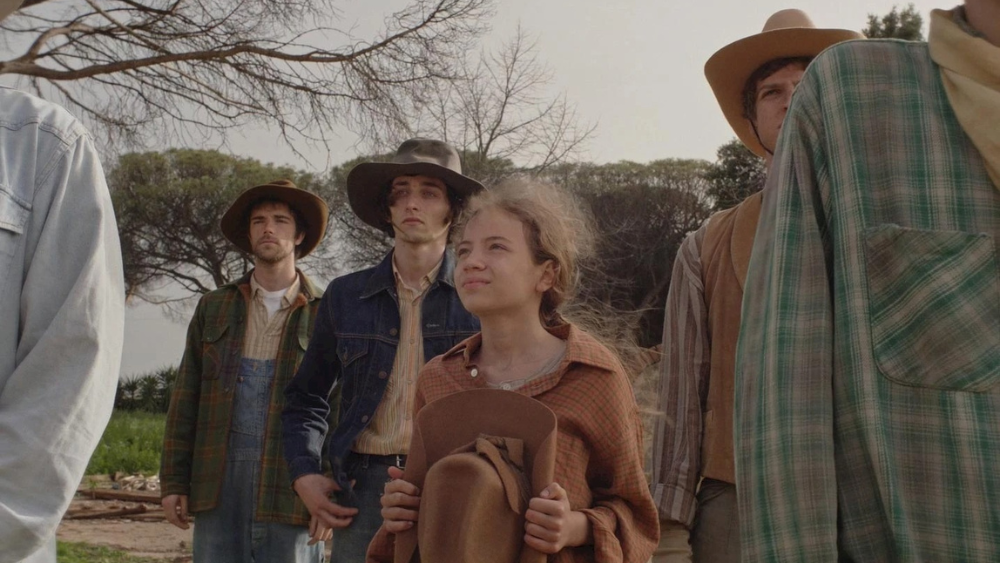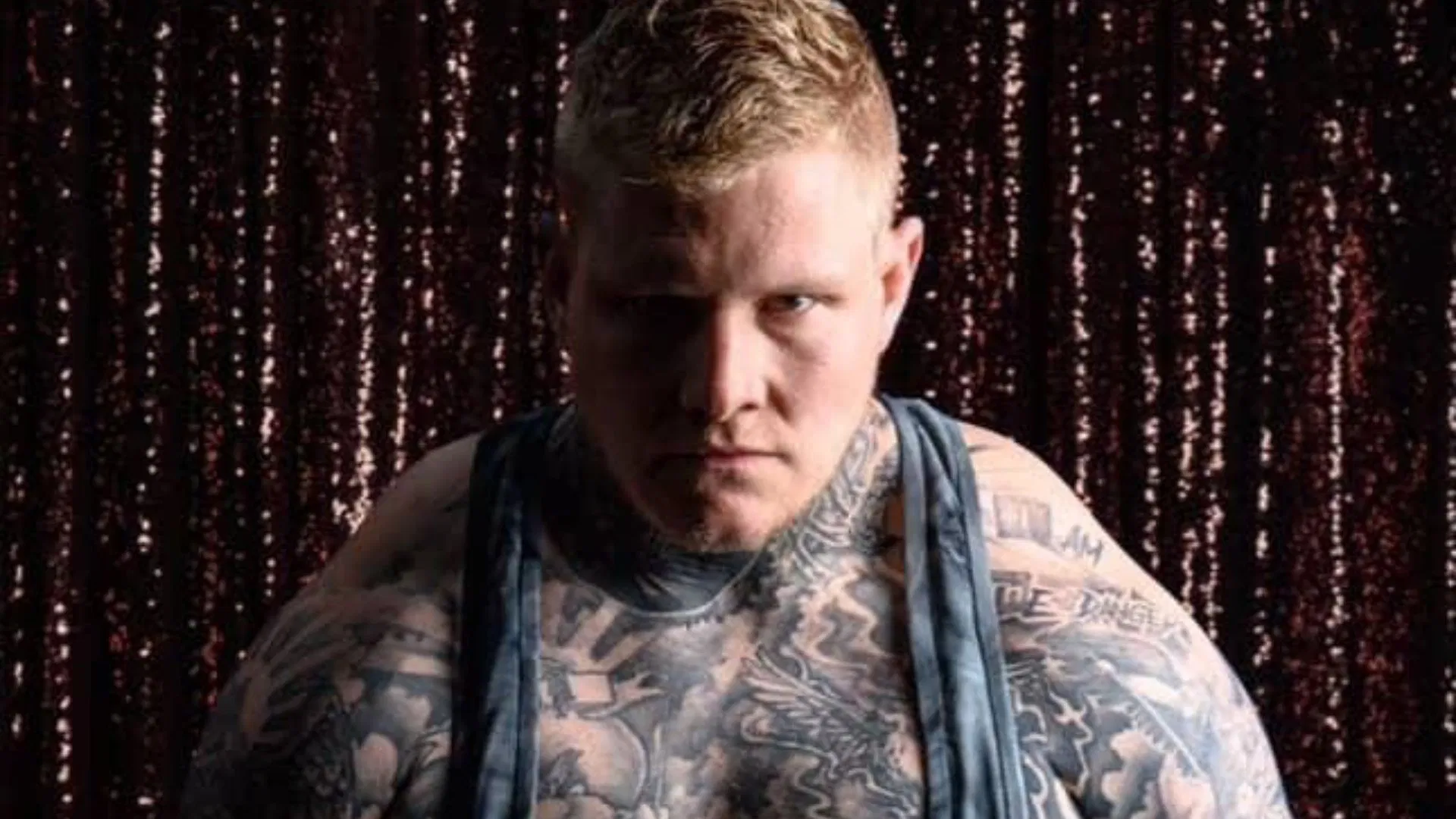
San Sebastián’s Ikusmira Berriak residency program is back for its 11th year with a crop of exciting new projects in development. Created in 2015 to promote emerging talent and delivered in partnership with the Tabakalera-International Centre for Contemporary Culture and the Elías Querejeta Zine Eskola (EQZE) training centre, the initiative offers five residencies to filmmakers each year.
The program consists of a stay of eight weeks divided into two stages comprising a seven-month mentoring program between March and September, culminating during the festival dates. During the festival, the filmmakers complete the last two weeks of their residency at the Tabakalera building and participate in professional activities that include pitching sessions, networking, and personalized one-to-one meetings.
A testament to the program’s success, Ikusmira Berriak has seen a whopping 34% increase in applications this year. Speaking with Variety ahead of welcoming this year’s cohort to the Basque city, Ikusmira Berriak’s Maialen Franco credits the rise in popularity to a “process of internal reflection” between 2017 and 2018, which resulted in a redefining of the program’s structure and methodology with a focus on internationalization. “This transformation marked a turning point: since then, the number of submissions has grown steadily, reaching 487 projects in the latest call.” For reference, the program’s early editions received between 30 and 40 proposals a year.
Since its launch, Ikusmira Berriak has supported the development of 56 audiovisual projects, 28 of which have premiered and been showcased at major international film festivals. “The success comes from the journey we take together, not just by supporting a specific project, but by standing behind the filmmakers themselves and supporting their overall cinematic careers,” adds Franco.
This year has proven to be a flagship cycle in terms of showcasing the initiative’s success. Diego Céspedes’s “The Mysterious Gaze of the Flamingo” (class of 2020) won the top prize at Cannes Un Certain Regard and Ana Cristina Barragán’s “The Ivy” (class of 2022) won best screenplay at Venice Horizons. Other former participants, such as Jaume Claret Muxart (“Strange River”) and Gabriel Azorín (“Last Night I Conquered Thebes”), also presented their films to acclaim in Venice.
Does the recurrent success of the program add any pressure to the team running it? “I wouldn’t say we feel pressure,” says Maialen. “What we do feel is a deep sense of responsibility and respect for the work we do and deliver. Each year, we make a conscious effort to reflect on ourselves to adapt to the current, ever-changing needs of a fast-moving industry.”
As an example, Franco cites two awards introduced last year: the Sideral Award, which offers €10,000 ($11,700) as a minimum guarantee for international distribution, and the Casa Wabi Award, an interdisciplinary initiative whose mission is to promote the exchange of ideas by encouraging open and constructive dialogue.
Commenting on this year’s cohort (see full profiles for all selected projects below), Franco praises the work of the selection committee, consisting of representatives from each partner institution (San Sebastián Festival, Tabakalera, and EQZE). “Beyond innovative ideas or the themes they address, the program places special emphasis on identifying a unique cinematic perspective: filmmakers with a distinct voice and the potential to be supported over time, beyond a single project.”
“The projects selected this year range from thriller and genre cinema to deeply social narratives,” adds the coordinator. “There are also stories that offer a critical perspective on capitalism and class dynamics. They exceptionally capture the multiple dimensions and tensions that both contemporary society and the film industry are experiencing. Each one approaches current concerns and challenges from very different perspectives, while also proposing new narrative and aesthetic ways to explore them.”
Below you will find short profiles for all participating projects at this year’s Ikusmira Berriak:
“900 Tons” (“900 toneladas”), dir. Daniel Soares – Portugal
(O Som e a Fúria)
Soares’s short film “Bad for a Moment” won the special mention for short film at the 2024 Cannes Film Festival, and his work has screened at major events such as Locarno and Telluride. His feature debut tells the story of 33-year-old garbage worker Sandro who cleans the streets of Lisbon at night and cares for his twin babies during the day. Despite struggling financially, Sandro gets a sports car, financing the luxury through sex work in a move that will blur his sense of identity.
“Cowboy Billi” (“Il Cascatore”), dir. Fede Gianni – Italy, Spain
(Kino Produzioni)
Gianni’s work has earned awards from the Directors’ Guild of America and The Gotham, and his short “Cowboy Billi” premiered at Venice’s Critics’ Week. The director’s feature debut is set on the outskirts of Rome in the 1960s. There, dusty fields double as Western movie sets as 12-year-old Bianca blurs gender lines by dreaming of becoming a stunt rider. When a film producer shows up looking for male talent, she creates a new life as Billy.
“Return to the Valley” (“Retorno al Valle”), dir. Jaime Puertas Castillo – Spain
(Películas Maria S.L.U.)
Castillo’s feature debut, “Historias de Pastores,” world premiered in Rotterdam last year, and his short films have played widely across Spain. His sophomore feature is a sensual drama following young Luz and Pedro, who meet by chance at the olive oil mill but are unaware of the existence of Omar, who lies in the infirmary of the nearby monastery. Gradually, these three people will discover the part played by the Divine in their relationship.
“La Koreana, un poema ferromagnético de luz y memoria,” dir. Joana Moya Blanco – Spain
(Sirimiri Films)
Bilbao’s Moya is a geologist and multidisciplinary artist whose 2022 short film “Todo lo cubre la sal” has played festivals such as Málaga and Doclisboa. “La Koreana,” her feature debut, originates from a family portrait. The film experiments with the scale of geological time to investigate the memory of a mountain through a non-linear narrative. The project has been selected by the Matadero Residency Centre together with Cineteca, Noka Mentoring (Tabakalera), and Dirdira Lab.
“The Dance of the Shadows” (“La danza de las sombras”), dir. Kathy Mitrani – France
(Eddy Cinéma)
This is the feature debut of New York-based Colombian filmmaker Mitrani, whose short (“Buzzkill,” “Sombras Nada Más”) films have played at major international festivals over the last five years. The film finds Ivonne on a luxurious holiday off the north coast of Colombia. Strange things begin to happen: She clashes with an oddshaman, then a dangerous storm ensues, and, finally, her husband dies in mysterious circumstances. Faced with an unresolved crisis of faith, Ivonne must struggle to protect her family’s honor.
“Sirens” (“Sirenas”), dir. Alexandra Latishev Salazar – Costa Rica
(Linterna Films)
Latishev Salazar’s debut feature “Medea” premiered in San Sebastián and went on to play over 50 festivals across the world, as well as be Costa Rica’s nomination for the best international feature Oscar in 2017. She is the co-founder of Linterna Films alongside Nicólas Wong. “Sirens” is a magical realist drama about a woman who joins a guest house inhabited by women and non-binary people who call themselves “sirens” after her husband is lost at sea.



